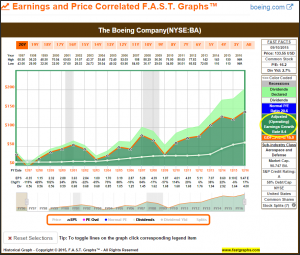Performance management software is changing the way companies do business. Large companies are embracing new software to create a more collaborative workplace, to enable constant feedback and recognition between co-workers and to keep up with the fast-pace of business today.
Organizations including Adobe, Accenture and Cargill have become trailblazers in the performance management arena, making bold decisions to cull their annual performance appraisals in favour of continuous performance management processes. Considering that the average manager spends an astounding 200 hours each year on performance management, it’s no surprise that big companies are tackling the issues head on.
Performance management is undergoing a transformation and trends in the sector have been all the talk in 2016. Feedback and coaching have taken precedence over rankings, development-based conversations and personal development plans are coming into play, and the emphasis is firmly on forward-focused approaches.
None of these transformations would be possible without innovative, new performance management software systems.
Performance Management Software in 2016
Performance management software will be part of a major trend toward a design-centric, digital focus within HR in 2016. Performance management software tools are improving business productivity and increasingly replacing outdated HR software.
In his research report on Predictions in 2016, Josh Bersin predicts that: “Apps will become king, the cloud will sit behind the scenes, and traditional software will seem less and less relevant. We will learn online, onboard and communicate through our phones, and wear devices that feel like the Internet of Things.”
Well-designed performance management tools are shaping the way that organizations do business, focusing on streamlining processes for efficiency and motivating employees to excel. Here’s how performance management software systems are already impacting businesses:
- Simplification in HR
By using software, HR teams and managers are able to simplify performance management processes and cut down on paperwork in favour of an online, cloud-based system which collects information. Some software also analyses data in order to highlight trends and problem areas relating to performance.
- Collating Performance Insights
These performance insights enable HR to collate training and development needs for the whole organization instantly by simply running a report. Organizations using a paper-based system will be left in the dust if they continue to manually sift through appraisal documents to pull out training and development needs in order to create their training plans for the year.
- User-Friendliness
In order to be successful, new technology has to be user-friendly. Performance management software is modelling itself on social media with interfaces that are designed to be highly user-friendly and that have real-time updates just like we have on Facebook, Twitter and Instagram.
- Improving Collaboration
By making performance management software user-friendly and easily accessible by employees across the company, software is driving collaboration amongst teams. Team members can interact with one another at any time and from any device, requesting feedback, updating personal development plans and communicating new ideas.
How Large Companies Are Using Performance Management Software
A number of notable companies who have revamped their performance management processes in recent years have embraced performance management software as a way forward.
General Electric use a performance management software app to track goals. Employees and their managers can access the app through their mobile phones to review their goals and add progress updates. The app records feedback and comments, making the process collaborative and constructive.
Some companies have introduced pulse surveys. These anonymous surveys arrive once a week in each employee’s inbox and ask quick questions relating to how engaged and happy employees are at work and what they think could be improved. Karl Waldman, senior vice president at Retail Solutions, has commented that insights gained this way can be invaluable.
Improved learning management systems are being used by companies — including Abbott Laboratories and Constellation Research Inc. — to give employees more autonomy over their training and what they want to learn. However, many systems in this area are still considered to be in their developmental stages.
Other companies are taking performance software a step further. Persistent Systems, a company specialising in business software, gamified their performance appraisals. The missions and achievements within the game system encourage employee engagement and managers can give virtual gifts to recognise employee performance.
Performance management is an area undergoing massive growth and transformation, and technological solutions will continue to develop to support those changes.
Business & Finance Articles on Business 2 Community(42)
Report Post







